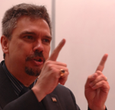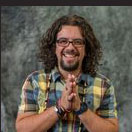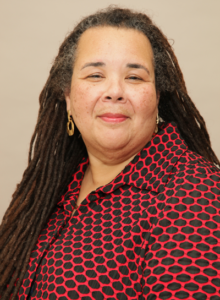liberative pedagogy
Select an item by clicking its checkbox
Since the start of the twentieth century, Christian religion scholars from the dominant culture - specifically ethicists – shifted their focus on how to live the Christian life via praxis toward the nature of ethics, wrestling more with abstract questions concerned with what is the common good and/or which virtues ...

Turning Teaching Inside Out: A Pedagogy of Transformation for Community-Based Education
Date Reviewed: November 30, -0001
Debates about the purpose and quality of education tend to center on evaluative tools and the number of persons successfully completing courses of study. The assumption being that education’s primary purpose is to prepare a workforce for a competitive market place. These and several other assumptions about the process and goals of education are challenged in the encouraging text Turning Teaching Inside Out: A Pedagogy of Transformation. This collection of essays written by participants in the Inside Out Prison Exchange Program describe and analyze a pedagogy that in form, content, and process reflects the educational goals of developing critical thinking skills, integrative learning for comprehensive application, and empowerment. For those who value education as the forming of persons who can positively contribute to and impact society, this program is an affirmation of the promise and power of liberative pedagogies and service education programs.
The Inside Out Prison Exchange program brings together students from universities and prisons to study and learn, initially about the criminal justice system and its social implications, but now encompassing a wide range of subjects: sociology, philosophy, performance art, social work, literature, and law. A liberative model based on the seminal work of Paolo Freire, students and teachers come together across multiple lines of difference to critically reflect on the social issues that impact and contribute to this nation’s alarming incarceration rate, especially of people of color. Utilizing a dialogical methodology, questions are raised, not only about the content of issues, but also about the very process of learning. A space of respect and mutuality is created through icebreakers and small group work, the negotiation of norms, and expectations. Learning is engaged with the basic assumption that all present are both teacher and student. Questions and dialogue lead to strategies for change and when the semester is over, many commit to the ongoing work of community education through projects that expand their experience to incorporate institutional decision makers, politicians, family members, and community organizations dedicated to improving the criminal justice and educational systems. These think tanks and policy development groups lead to praxis, concrete engagement of the systems that impact and contribute to the violence, and social integration explored in the class setting. The ripple effect moves beyond the prison walls and even the collaboration necessary to run this program and expand it internationally are a product of the mutual and collaborative relationships formed through this Inside Out transformational pedagogy.
The essays include historical analysis of the current prison industrial complex, the personal transformation that humanizes social service professionals, the community and political organizing of alumni and the different contexts in which this model has been successfully applied, as well as articles about research methodologies and variations and outgrowths of the original program. The appendices helpful, offering models of the activities and frameworks utilized by the program. These first hand reflections provide rich material for analysis and application useful for all educators. I was left wanting more detail about the setbacks and challenges, especially as the program was replicated and expanded to different contexts. Some strategies are suggested (for example, start the collaboration with people on the ground not necessarily administration [30]) that suggest lessons learned through hard experience and I can only imagine the number of obstacles overcome given the stringent limits set by this particular context. This text invites educators to reconsider or renew their commitment to personal and social transformation. It is an important resource for those seeking to strengthen and improve education everywhere from the inside out.
In memory of William Klug and Ioan Petru Culianu Pedagogies are concerned with the study and practice of teaching and learning. Pedagogies are ways of organizing society as it has to do with ways of thinking and valuing life, shaping emotions, defining sense, choosing abilities, establishing relations and so on. ...
So central to my identity is teaching that when I think of the highest honor, the highest appreciation – I think of my gratitude for those who have liberated me through their teaching. I aspire, then, to instill in my students an appreciation for their dearest teachers. I want them to ...
I am delighted to be writing this blog with two other fantastic teachers I admire greatly: Lynne Westfield and Tat-siong Benny Liew. The Wabash Center has been a fantastic place that has empowered so many teachers, and has expanded resources and possibilities for learning and networking, and I am grateful ...


